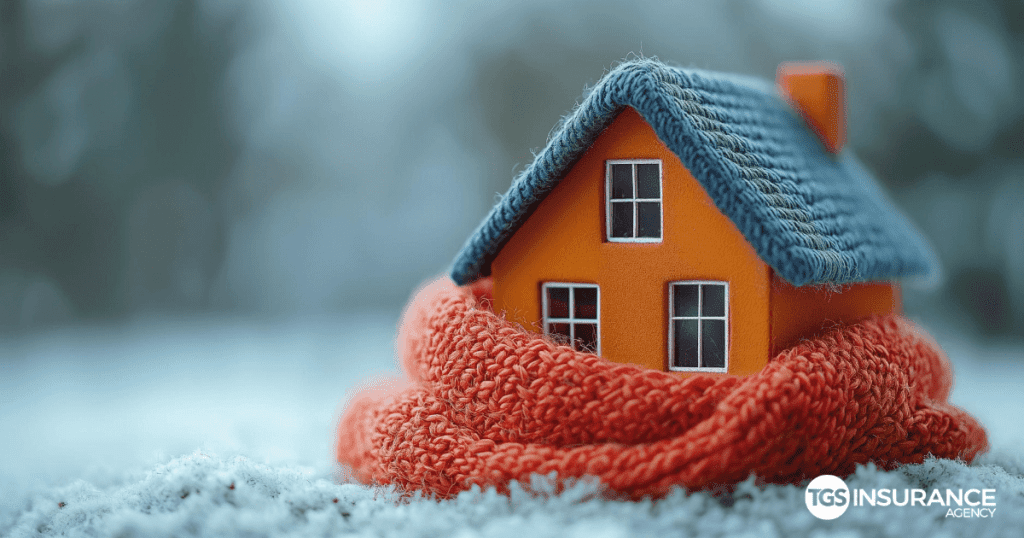
Freezing temperatures might not visit your home often, but when they do, preparation is key to avoiding damage and keeping everyone safe. Let’s explore practical, straightforward steps to help you prepare your home for a freeze—ensuring peace of mind and protection from the cold.
1. Protect Your Pipes
Burst pipes are one of the most common consequences of freezing weather. The good news? Preventing it isn’t as hard as you might think:
- Disconnect and Drain Hoses: Outdoor faucets and hoses are especially vulnerable to freezing. Disconnect hoses, drain them, and store them indoors until warmer weather returns.
- Wrap Exposed Pipes: Insulate outdoor faucets and any exposed pipes with foam covers or heat tape to help shield them from the cold.
- Open Cabinet Doors: In your kitchen and bathroom, open cabinets to let warm air circulate around the plumbing.
- Drip Your Faucets: A slow, steady drip keeps water moving, which can prevent it from freezing. It might feel counterintuitive to waste water, but it’s a small trade-off for avoiding costly repairs.
- Know Your Shut-Off Valve: If the worst happens, you’ll want to act fast. Locate your main water shut-off valve now so you’re not scrambling in an emergency.
2. Prep Your Sprinkler System and Pool
Sprinklers and pools often get overlooked when winterizing a home, but taking a few precautions can save you headaches later:
- Shut Off and Drain Sprinklers: Turn off your sprinkler system and drain any remaining water to prevent freezing damage.
- Run the Pool Pump: If you have a swimming pool, keep the pump running during freezing weather. Circulating water is less likely to freeze, protecting your pool’s pipes and equipment.
3. Shield Your Plants
For plant lovers, freezing temperatures can feel like a personal attack. Here’s how to protect your greenery:
- Cover Outdoor Plants: Use frost cloths, old sheets, or even towels to cover your plants, trapping heat and shielding them from frost.
- Bring Potted Plants Indoors: Relocate potted plants to a garage or indoors where they’ll be safe from freezing temperatures.
4. Prepare for Power Outages
Severe freezes can sometimes knock out power, leaving you in the cold—literally. Be ready:
- Stock Up on Essentials: Keep extra blankets, flashlights, batteries, and non-perishable food on hand.
- Use Generators Safely: If you rely on a generator, always operate it outdoors and far from windows to prevent carbon monoxide poisoning.
- Check Smoke and Carbon Monoxide Detectors: Ensure these critical devices have fresh batteries and are functioning properly.
5. Don’t Forget Your Furry Friends
Your pets rely on you to keep them safe:
- Bring Them Indoors: Even if your pets are used to spending time outside, freezing temperatures can be life-threatening. Keep them indoors until the cold snap passes.
- Provide Extra Bedding: If they sleep in colder areas of your home, like a garage, make sure they have plenty of warm bedding.
6. In Case of a Burst Pipe
Sometimes, despite our best efforts, pipes can still freeze and burst. Here’s what to do:
- Shut Off the Water Immediately: Turn off your home’s main water valve to minimize flooding.
- Document the Damage: Take photos or videos for your insurance claim.
- Remove Standing Water: Use towels, mops, or a wet/dry vacuum to clean up quickly and prevent mold growth.
- Call Your Insurance Agent: Reach out to your agent to start the claims process. Having the right homeowners insurance coverage can make all the difference.
Stay Protected with the Right Homeowners Insurance Coverage
Preparing your home for a freeze is a smart move, but accidents can still happen. Having a robust homeowners insurance policy ensures you’re ready for the unexpected. At TGS Insurance Agency, we’re here to help you find the right home insurance policy tailored to your needs. Contact us today to secure your peace of mind.
Instant Home Insurance Quote
Recent Home Insurance Articles:
- Thanksgiving Fire Safety: Protect Your Home, Your Family, and Your Peace of Mind
- Fall Home Maintenance Checklist: Prevent Costly Insurance Claims Before Winter
- Who Needs to be Listed on Homeowners Insurance
- Does Homeowners Insurance Cover Mold?
- Actual Cash Value vs. Replacement Value: What’s the Difference, and Where Does Market Value Fit In?